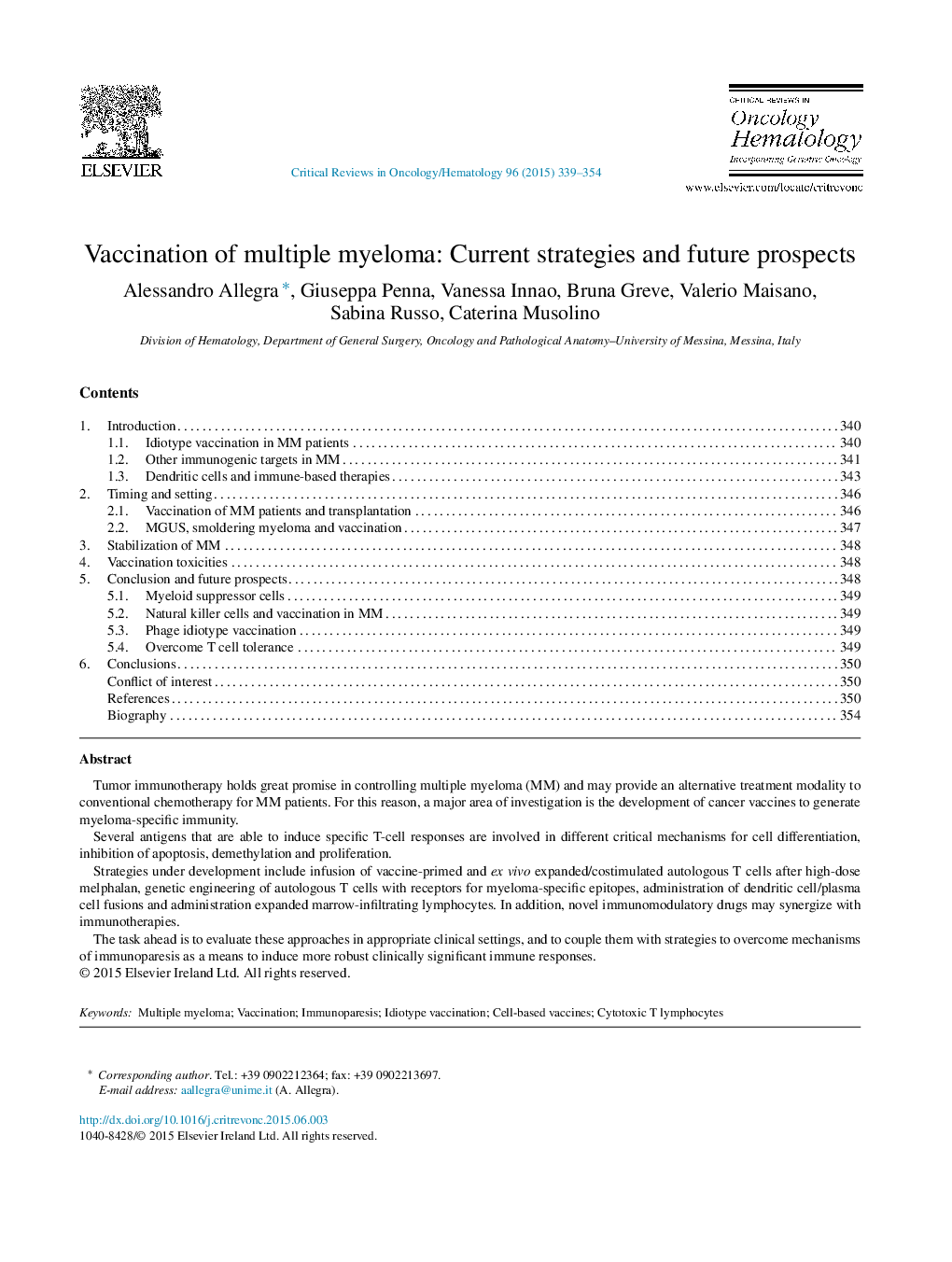| Article ID | Journal | Published Year | Pages | File Type |
|---|---|---|---|---|
| 3328665 | Critical Reviews in Oncology/Hematology | 2015 | 16 Pages |
•Tumor immunotherapy provides an alternative modality to treat cancer.•Cancer vaccines can generate myeloma-specific immunity.•Several antigens are able to induce T-cell response.•Strategies to overcome T cell tolerance should result in durable clinical response.
Tumor immunotherapy holds great promise in controlling multiple myeloma (MM) and may provide an alternative treatment modality to conventional chemotherapy for MM patients. For this reason, a major area of investigation is the development of cancer vaccines to generate myeloma-specific immunity.Several antigens that are able to induce specific T-cell responses are involved in different critical mechanisms for cell differentiation, inhibition of apoptosis, demethylation and proliferation.Strategies under development include infusion of vaccine-primed and ex vivo expanded/costimulated autologous T cells after high-dose melphalan, genetic engineering of autologous T cells with receptors for myeloma-specific epitopes, administration of dendritic cell/plasma cell fusions and administration expanded marrow-infiltrating lymphocytes. In addition, novel immunomodulatory drugs may synergize with immunotherapies.The task ahead is to evaluate these approaches in appropriate clinical settings, and to couple them with strategies to overcome mechanisms of immunoparesis as a means to induce more robust clinically significant immune responses.
